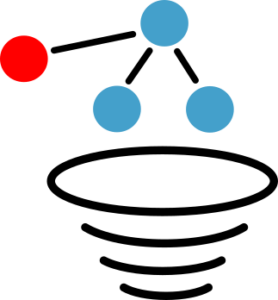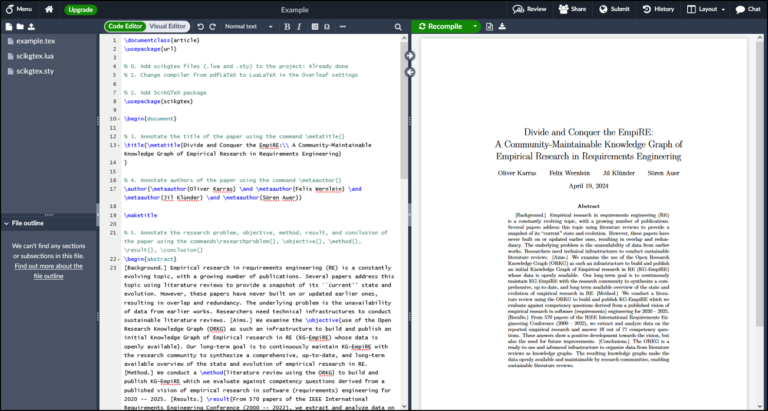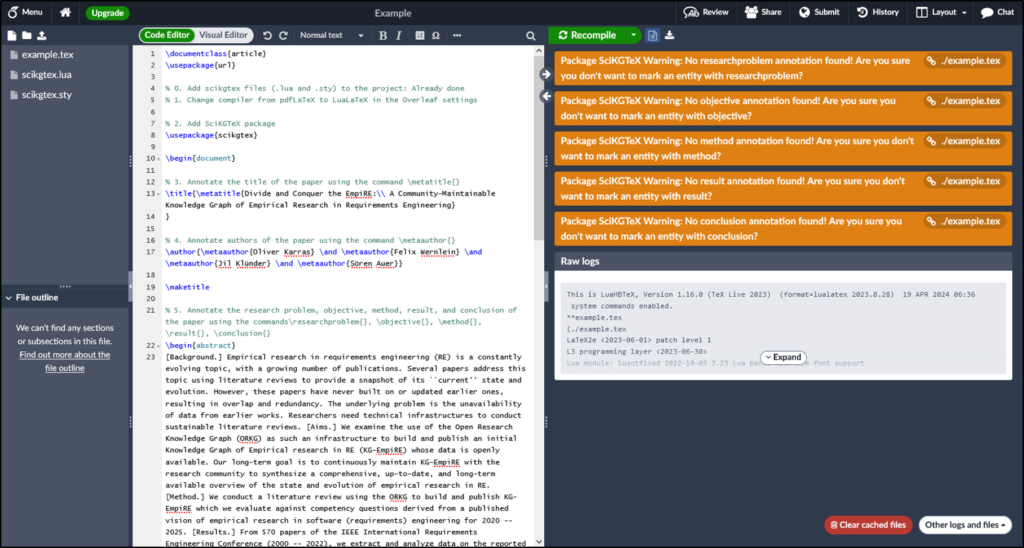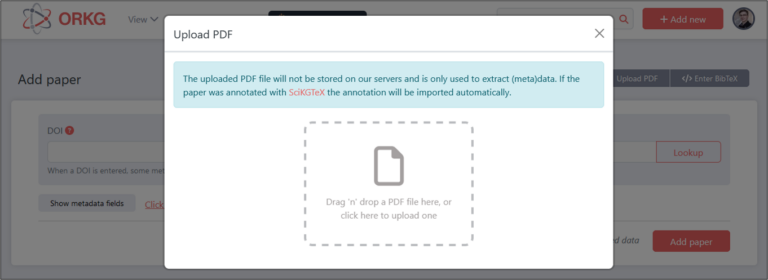Link to the service
Logo

Detailed description of the service
SciKGTeX is a LaTeX package designed to semantically annotate research contributions in scientific documents. Here’s a refined description addressing your questions:
Capabilities: SciKGTeX allows authors to mark the main contributions of their work directly in LaTeX source files. These annotations are embedded as metadata in the generated PDF, making them easily extractable and importable into scientific knowledge graphs like ORKG.
Added Value: For users, SciKGTeX enhances the discoverability and usability of their research by making it machine-actionable. This means search engines and knowledge graphs can better understand and utilize the annotated contributions, increasing the visibility and impact of the research.
Suitable For: SciKGTeX is ideal for researchers, academics, and students who use LaTeX for their scientific writing and want to improve the accessibility and impact of their work.
Typical Use Cases: Common uses include annotating key contributions in research papers, enhancing metadata for better indexing by search engines, and facilitating the integration of research findings into knowledge graphs.
Strengths: SciKGTeX simplifies the process of semantic annotation, making it quick and easy to add valuable metadata to scientific documents. It supports the FAIR principles (Findable, Accessible, Interoperable, Reusable) and integrates seamlessly with existing LaTeX workflows.
Weaknesses: One potential weakness is the initial learning curve for users unfamiliar with LaTeX or semantic annotation. Additionally, the effectiveness of the annotations depends on the accuracy and completeness of the user’s input.
Limitations: SciKGTeX may have limitations in terms of compatibility with non-LaTeX document formats and the need for continuous updates to keep up with evolving standards and technologies in semantic annotation and knowledge graphs.
Terms of use & restrictions
SciKGTeX is a free LaTeX package available to anyone who uses LaTeX for scientific writing. There are no costs associated with using SciKGTeX, and no registration is required.
Contact
Oliver Karras, oliver.karras@tib.eu
References
publications that reference (or report on using) the service
Reference on Service: Christof Bless, Ildar Baimuratov, and Oliver Karras: SciKGTeX – A LaTeX Package to Semantically Annotate Contributions in Scientific Publications.In: 2023 ACM/IEEE Joint Conference on Digital Libraries (JCDL), IEEE, 2023, https://dx.doi.org/10.1109/JCDL57899.2023.00030
Reference on Use: Christof Bless, I. Baimuratov, and O. Karras: SciKGTeX – Scientific Knowledge Graph TeX, Computer software, https://github.com/Christof93/SciKGTeX
Reference on Use: O. Karras, A. Ferrari, D. Fucci, and D. Dell’Anna: Supplementary Materials of the Tutorial: “Promotion of Open Science in Requirements Engineering – Leveraging the Open Research Knowledge Graph for FAIR Scientific Information” (1.1), 32nd IEEE International Requirements Engineering Conference 2024 (RE’24), Reykjavik, Iceland. Zenodo, 2023. https://doi.org/10.5281/zenodo.12518069
#WhyNFDI
SciKGTeX positively impacts everyday life and society by enhancing the discoverability and usability of research data. By embedding semantic annotations in scientific documents, it makes research findings more accessible and understandable. This leads to better-informed decisions in all areas. Additionally, it fosters collaboration among researchers, accelerating innovation and the application of scientific knowledge to real-world problems. Overall, SciKGTeX helps bridge the gap between complex research data and practical, societal benefits.
Miscellaneous
Ing.grid Journal recommend the use of SciKGTeX:
https://www.inggrid.org/news/20/
REFSQ’24 and REFSQ’25 Conference recommend the use of SciKGTeX:
https://2024.refsq.org/track/refsq-2024-open-science
https://2025.refsq.org/track/refsq-2025-open-science#Open-Science-Policy


